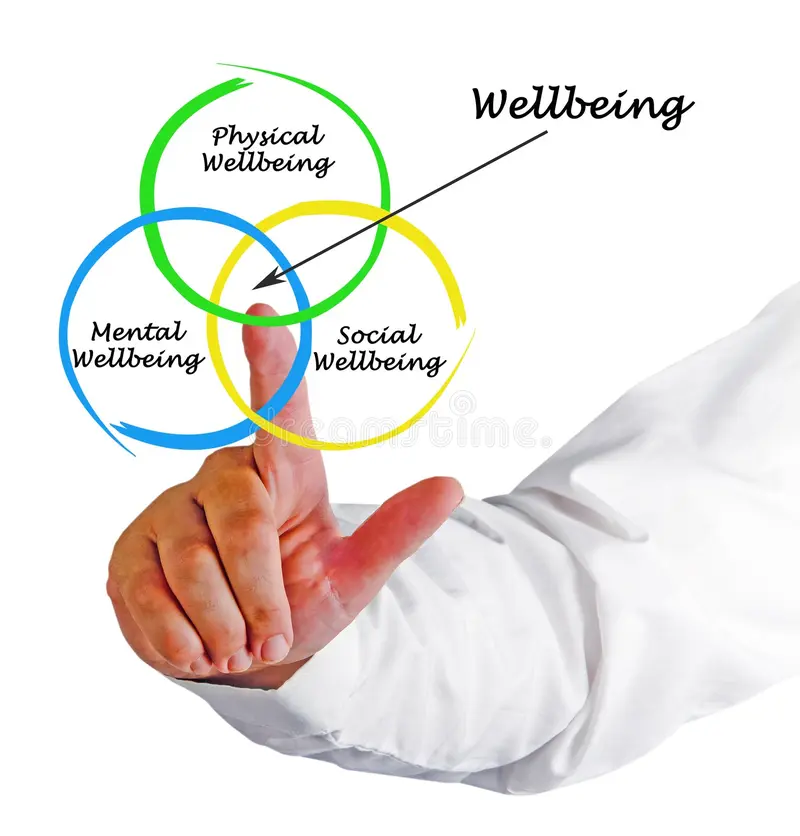table of contents
Emotional Wellness: A Guide to a Healthy and Balanced Life
In today’s fast-paced and often stressful world, emotional wellness is more important than ever. It’s not just about being happy all the time; emotional wellness refers to the ability to understand, manage, and express your emotions effectively. It’s also about maintaining healthy relationships and coping with the challenges of life in a balanced way. Let’s dive deeper into what emotional wellness is, why it’s important, and how you can cultivate it in your life.
—
What is Emotional Wellness?
Emotional wellness is the ability to recognize, accept, and manage your feelings, whether they are positive or negative. It involves understanding your emotions, maintaining a sense of purpose, and building resilience in the face of adversity. Emotional wellness doesn’t mean you’ll never experience sadness, anger, or stress. Instead, it equips you with the tools to face these emotions and respond to them in a healthy and constructive way.
Key Components of Emotional Wellness
1. **Self-Awareness**: Understanding your emotions and how they affect your thoughts and behaviors.
2. **Emotional Regulation**: Managing emotions in a way that is constructive and healthy.
3. **Resilience**: The ability to bounce back from setbacks and challenges.
4. **Positive Relationships**: Building and maintaining meaningful and supportive connections with others.
5. **Purposeful Living**: Having a sense of purpose or meaning in life, which can guide your decisions and actions.
—
Why is Emotional Wellness Important?
Emotional wellness affects nearly every aspect of your life, including your physical health, relationships, and career. Here are some reasons why emotional wellness is essential:
1. **Improved Physical Health**: Studies have shown that emotional well-being is closely linked to physical health. Chronic stress and unmanaged emotions can lead to conditions such as heart disease, high blood pressure, and weakened immunity.
2. **Better Relationships**: Emotional wellness helps you communicate effectively, empathize with others, and resolve conflicts in a healthy way.
3. **Higher Productivity**: When you’re emotionally healthy, you can focus better, make clearer decisions, and perform well in your professional life.
4. **Enhanced Resilience**: Emotional wellness provides the tools to navigate life’s ups and downs with greater ease and confidence.
5. **Greater Life Satisfaction**: A balanced emotional state allows you to experience joy, gratitude, and fulfillment in your daily life.
—
## **Tips for Cultivating Emotional Wellness**
Achieving emotional wellness is an ongoing process that requires effort and mindfulness. Here are some practical steps you can take to enhance your emotional well-being:
### 1. **Practice Self-Care**
– Take time for yourself to relax and recharge.
– Engage in activities that bring you joy, such as reading, painting, or gardening.
– Get enough sleep, eat nutritious food, and exercise regularly.
### 2. **Develop Healthy Coping Mechanisms**
– Learn how to manage stress through techniques like deep breathing, meditation, or yoga.
– Avoid turning to unhealthy habits such as overeating, alcohol, or procrastination to cope with emotions.
### 3. **Build Strong Relationships**
– Surround yourself with supportive and positive people.
– Communicate openly and honestly with loved ones.
– Seek to understand others’ perspectives and practice empathy.
### 4. **Embrace Self-Awareness**
– Reflect on your thoughts and feelings through journaling or mindfulness practices.
– Identify triggers that cause negative emotions and work on managing them.
– Celebrate your strengths and acknowledge areas for growth.
### 5. **Seek Professional Help When Needed**
– Don’t hesitate to reach out to a counselor or therapist if you’re struggling with your emotions.
– Therapy can provide valuable tools and strategies to help you navigate difficult emotions and situations.
### 6. **Stay Positive**
– Focus on the good things in your life, no matter how small they may seem.
– Practice gratitude by writing down things you’re thankful for each day.
– Learn to reframe negative situations and find silver linings.
—
## **The Role of Mindfulness in Emotional Wellness**
Mindfulness is the practice of being present in the moment without judgment. It’s a powerful tool for improving emotional wellness because it helps you:
– Recognize and accept your emotions without being overwhelmed by them.
– Reduce stress and anxiety by focusing on the present rather than dwelling on the past or worrying about the future.
– Improve focus and clarity, making it easier to manage daily challenges.
Simple mindfulness exercises, such as deep breathing or a short meditation session, can make a big difference in your emotional health.
—
## **Emotional Wellness at Work**
Maintaining emotional wellness is especially important in the workplace, where stress and pressure can take a toll on your mental health. Here are some tips for fostering emotional wellness at work:
– Set boundaries to maintain a healthy work-life balance.
– Take regular breaks to recharge during the day.
– Communicate effectively with colleagues and superiors.
– Focus on tasks that align with your values and strengths.
– Seek support from HR or a mental health professional if needed.
—
## **The Connection Between Emotional and Physical Wellness**
Emotional and physical wellness are deeply interconnected. For example:
– Chronic stress can lead to physical symptoms such as headaches, fatigue, and digestive issues.
– Regular exercise releases endorphins, which improve mood and reduce stress.
– A healthy diet provides the nutrients your brain needs to function optimally.
By taking care of your emotional health, you’re also supporting your physical well-being—and vice versa.
—
## **Takeaway**
Emotional wellness is not a destination but a lifelong journey. It requires consistent effort, self-awareness, and a commitment to growth. By prioritizing your emotional health, you can improve your overall quality of life, build stronger relationships, and navigate challenges with resilience and confidence. Remember, it’s okay to ask for help and take small steps toward emotional well-being each day. Your mental and emotional health deserve just as much attention as your physical health.
So, take a deep breath, reflect on your emotional needs, and start prioritizing your emotional wellness today. It’s one of the best investments you can make for your future self.
—
**Start your journey toward emotional wellness now—because you deserve a life filled with balance, joy, and peace.**



